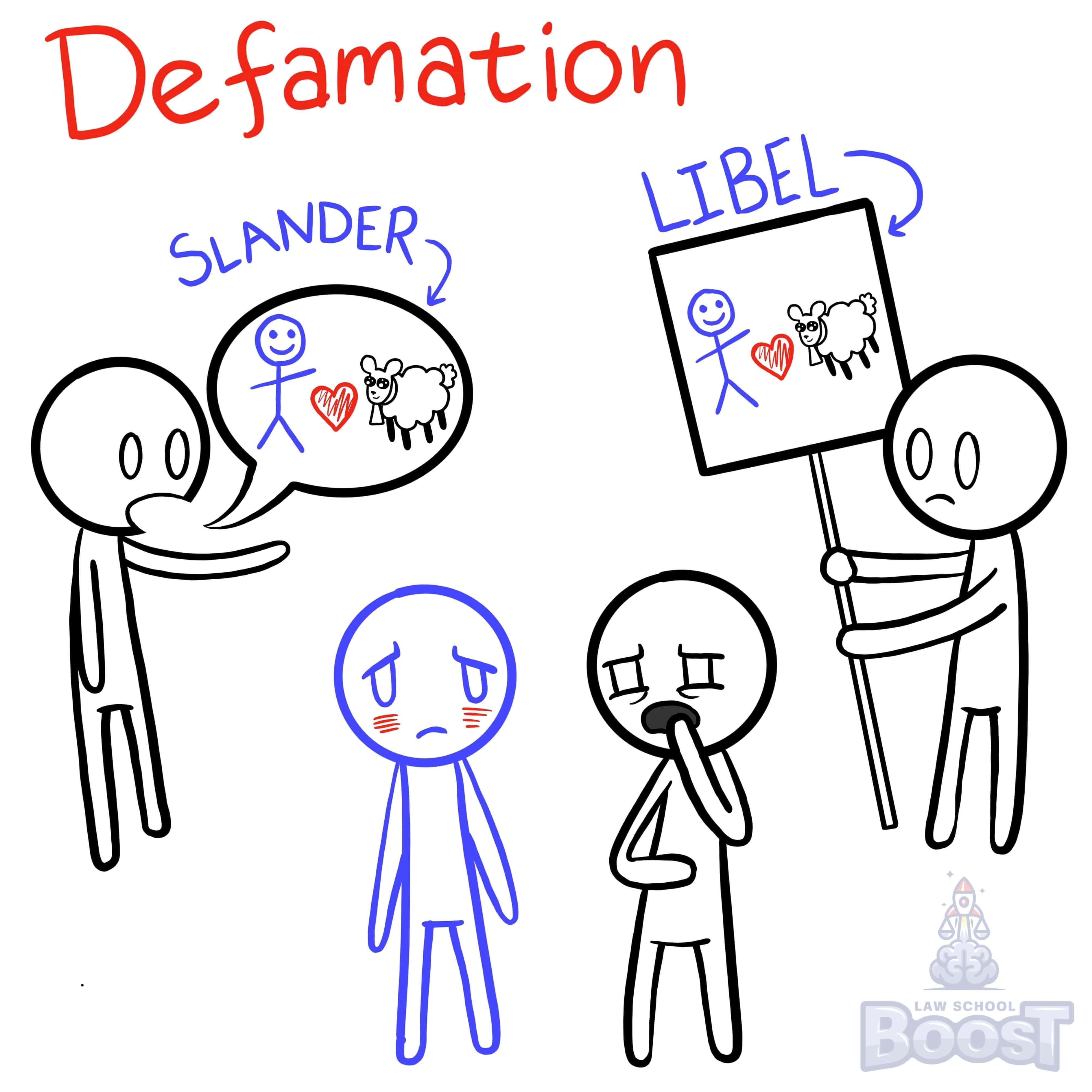👀
Torts • Defamation
TORT#084
Legal Definition
Defamation is (1) a defamatory statement, (2) of or concerning the plaintiff, (3) published by the defendant to a third person, which (4) causes damage to the plaintiff's reputation.
Plain English Explanation
Sticks and stones may break your bones, but words that hurt reputations are torts, too. Defamation is essentially when someone says or writes something false about you that harms your reputation. There are a few key elements that make a defamation claim valid:
(1) Defamatory Statement: This is a false statement that would make others think less of you. It’s not just an insult; it has to be something that could harm how people view your character or standing. For example, falsely accusing someone of being a thief or a liar could be defamatory because it damages their reputation.
(2) Of or Concerning the Plaintiff: The statement has to be about the person who is suing. If someone says something bad about a group, but you can't prove that it was specifically about you, it won't count. It needs to be clear that the defamatory statement refers to the person bringing the lawsuit.
(3) Published to a Third Person: "Published" doesn’t mean it has to be in a book or article—it just has to be communicated to someone other than the person being defamed. This can be as simple as saying something false about someone to another person, or posting it on social media. If nobody else heard or saw the statement, it’s not defamation.
(4) Causes Damage to Reputation: Lastly, the statement has to harm the person’s reputation. This could mean losing their job, being shunned socially, or losing business opportunities. The key is that the false statement must have real consequences for how others perceive them.
(1) Defamatory Statement: This is a false statement that would make others think less of you. It’s not just an insult; it has to be something that could harm how people view your character or standing. For example, falsely accusing someone of being a thief or a liar could be defamatory because it damages their reputation.
(2) Of or Concerning the Plaintiff: The statement has to be about the person who is suing. If someone says something bad about a group, but you can't prove that it was specifically about you, it won't count. It needs to be clear that the defamatory statement refers to the person bringing the lawsuit.
(3) Published to a Third Person: "Published" doesn’t mean it has to be in a book or article—it just has to be communicated to someone other than the person being defamed. This can be as simple as saying something false about someone to another person, or posting it on social media. If nobody else heard or saw the statement, it’s not defamation.
(4) Causes Damage to Reputation: Lastly, the statement has to harm the person’s reputation. This could mean losing their job, being shunned socially, or losing business opportunities. The key is that the false statement must have real consequences for how others perceive them.
Visual Aids

Related Concepts
In assessing a defamation claim, what is actual malice?
In assessing a defamation claim, what must a plaintiff prove when a statement is a matter of public concern?
In assessing a defamation claim, what must a plaintiff prove when the issue is a matter of private concern?
In assessing a defamation claim, what must a plaintiff prove when they are a private person and the statement is a matter of public concern?
In assessing a defamation claim, what must a plaintiff prove when they are a public official or figure?
What is libel?
What is libel per quod?
What is slander?
What is slander per se?
What may be used as defenses to a defamation claim?
When is absolute privilege a defense to defamation?
When is consent a defense to defamation?
When is qualified privilege a defense to defamation?
When is truth a defense to defamation?


